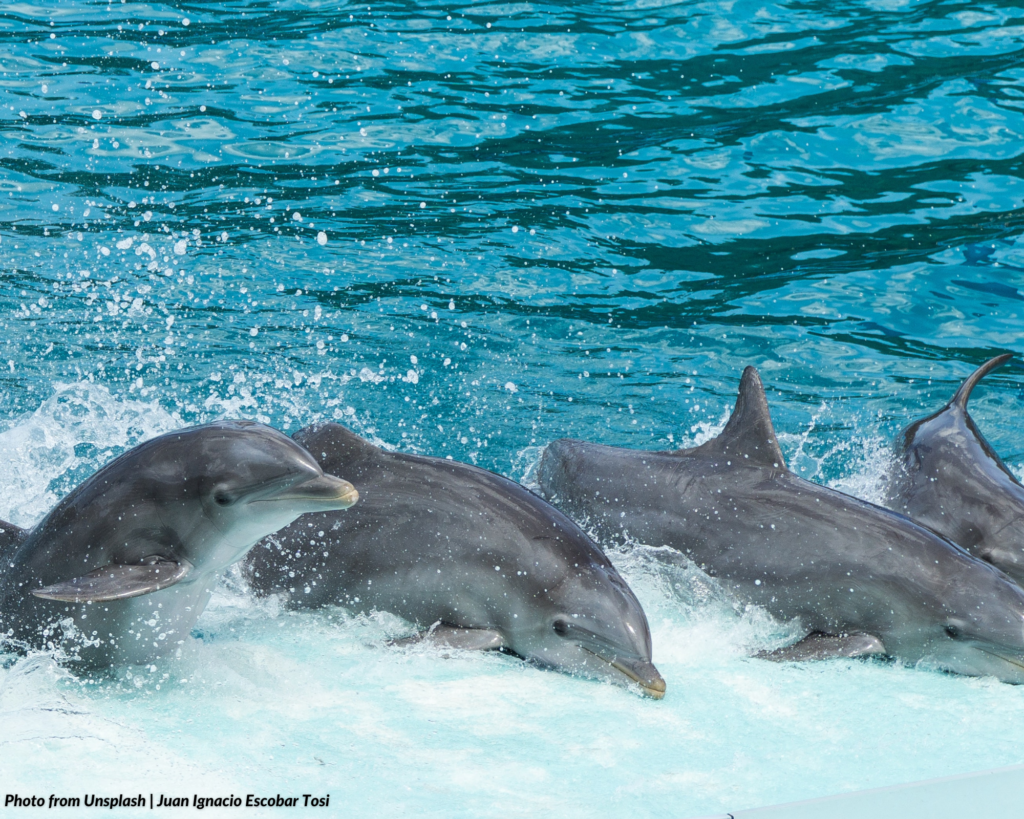
Photo from Unsplash | Juan Ignacio Escobar Tosi
The following post does not create a lawyer-client relationship between Alburo Alburo and Associates Law Offices (or any of its lawyers) and the reader. It is still best for you to engage the services of a lawyer or you may directly contact and consult Alburo Alburo and Associates Law Offices to address your specific legal concerns, if there is any.
Also, the matters contained in the following were written in accordance with the law, rules, and jurisprudence prevailing at the time of writing and posting, and do not include any future developments on the subject matter under discussion.
AT A GLANCE:
The need to give the Resident Marine Mammals legal standing [to sue] has been eliminated by the Rules on Environmental Procedures, which allows any Filipino citizen, as a steward of nature, to bring a suit to enforce our environmental laws. (Resident Marine Mammals of the Protected Seascape of Tañon Strait v. DOE Secretary Angelo Reyes, et al., G.R. No. 180771, April 21, 2015)
“Humans are the stewards of nature.”
-Resident Marine Mammals of the Protected Seascape of Tañon Strait v. DOE Secretary Angelo Reyes, et al. (G.R. No. 180771, April 21, 2015)
In 2015, a group of resident marine mammals of the Protected Seascape of Tañon Strait, joined by Gloria Estenzo Ramos and Rose-Liza Eisma-Osorio as their legal guardians and as friends who allegedly empathize with and seel the protection of the resident marine mammals, filed a Petition for Certiorari, Mandamus and Injunction seeking to enjoin respondents from implementing Service Contract No. 46 which allowed the exploration, development and exploitation of petroleum resources within the Tañon Strait, and to have it nullified for willful and gross violation of the 1987 Constitution and certain international and municipal laws.
Among the issues presented before the Court is whether these resident marine mammals have legal standing to sue before Philippine Courts.
What is legal standing?
“Locus standi or legal standing has been defined as the personal and substantial interest in the case such that the party has sustained or will sustain direct injury as a result of the governmental act being challenged.” (Ernesto Ching v. Carmelita Bonachita-Ricablanca, G.R. No. 244828, October 12, 2020)
Further, to have legal standing, a person must show that he has sustained or will sustain a “direct injury” as a result of the governmental action, or have a “material interest” in the issue affected by the challenged official act.”
To encourage the protection of the environment, the Rules of Procedure for Environmental Cases enable litigants enforcing environmental rights to file their cases as citizen suits, which liberalizes standing for all cases filed enforcing environmental laws and collapses the traditional rule on personal and direct interest, on the principle that humans are stewards of nature.
To conclude, although the animals themselves do not have the legal standing to sue, they are represented by their human stewards by virtue of intergenerational responsibility. Stewards may be allowed to file an action to enforce environmental laws not in representation of marine mammals but in their own right by way of a citizen suit which allows any Filipino Citizen, as a steward of nature, to bring suit to enforce environmental laws.
Citizen Suit under the Rules of Procedure for Environmental Cases (A.M. No. 09-6-8-SC)
A citizen suit under the Rules of Procedure for Environmental Cases (A.M. No. 09-6-8-SC) allows any Filipino to act as a representative of a party who has enforceable rights under environmental laws before Philippine courts.
The Rules of Procedure for Environmental Cases (RPEC) provides that:
“Any Filipino citizen in representation of others, including minors or generations yet unborn, may file an action to enforce rights or obligations under environmental laws. Upon the filing of a citizen suit, the court shall issue an order which shall contain a brief description of the cause of action and the reliefs prayed for, requiring all interested parties to manifest their interest to intervene in the case within fifteen (15) days from notice thereof. The plaintiff may publish the order once in a newspaper of a general circulation in the Philippines or furnish all affected barangays copies of said order.” (Section 5, Rule 2, Part II, RPEC)
Jurisprudence says:
“There is no valid reason in law or the practical requirements of this case to implead and feign representation on behalf of animals. To have done so betrays a very anthropocentric view of environmental advocacy. There is no way that we, humans, can claim to speak for animals let alone present that they would wish to use our court system, which is designed to ensure that humans seriously carry their responsibility including ensuring a viable ecology for themselves, which of course includes compassion for all living things.” (J. Leonen, Concurring Opinion, Resident Marine Mammals of the Protected Seascape of Tañon Strait v. DOE Secretary Angelo Reyes, et al., G.R. No. 180771, April 21, 2015)
Alburo Alburo and Associates Law Offices specializes in business law and labor law consulting. For inquiries regarding taxation and taxpayer’s remedies, you may reach us at info@alburolaw.com, or dial us at (02)7745-4391/0917-5772207.
All rights reserved.


